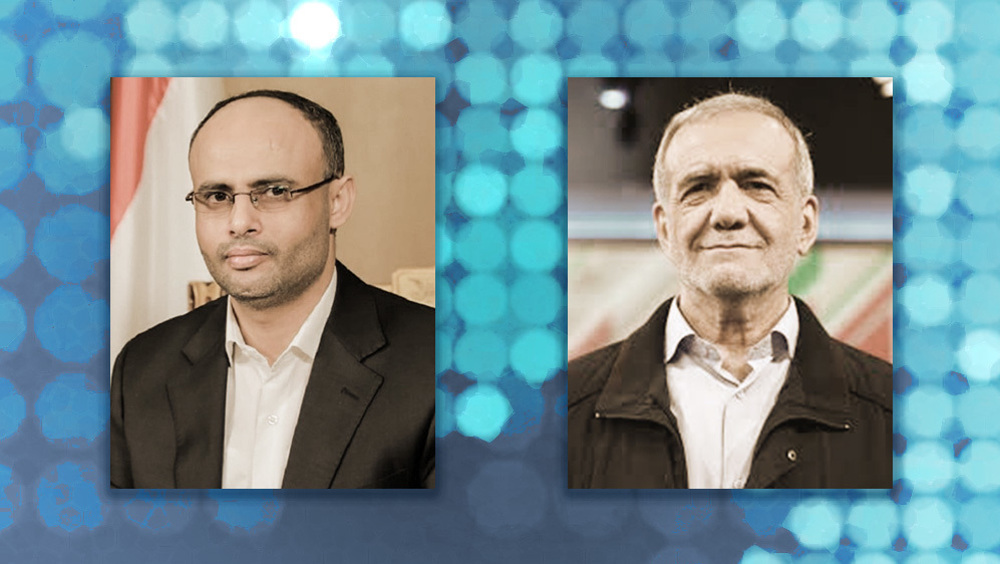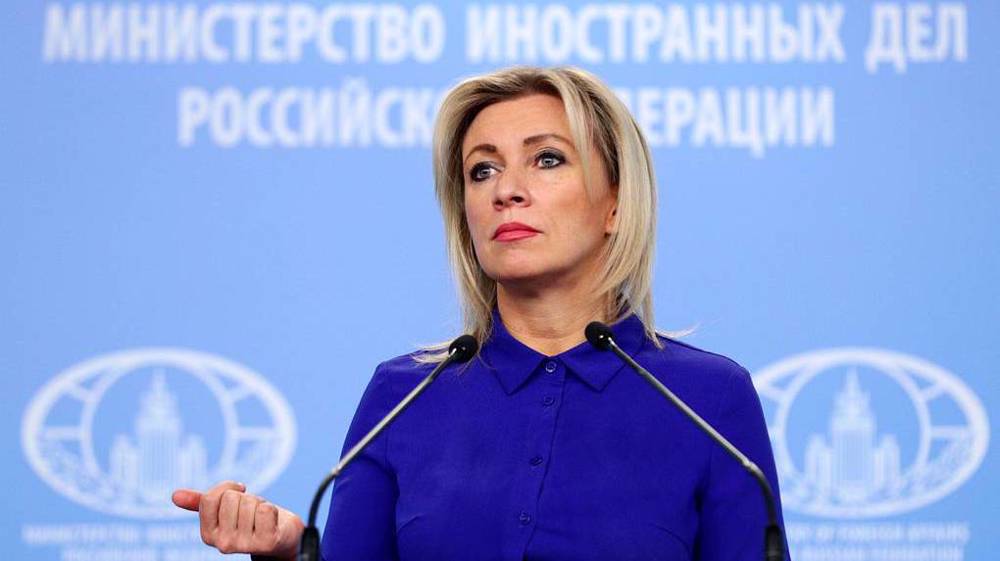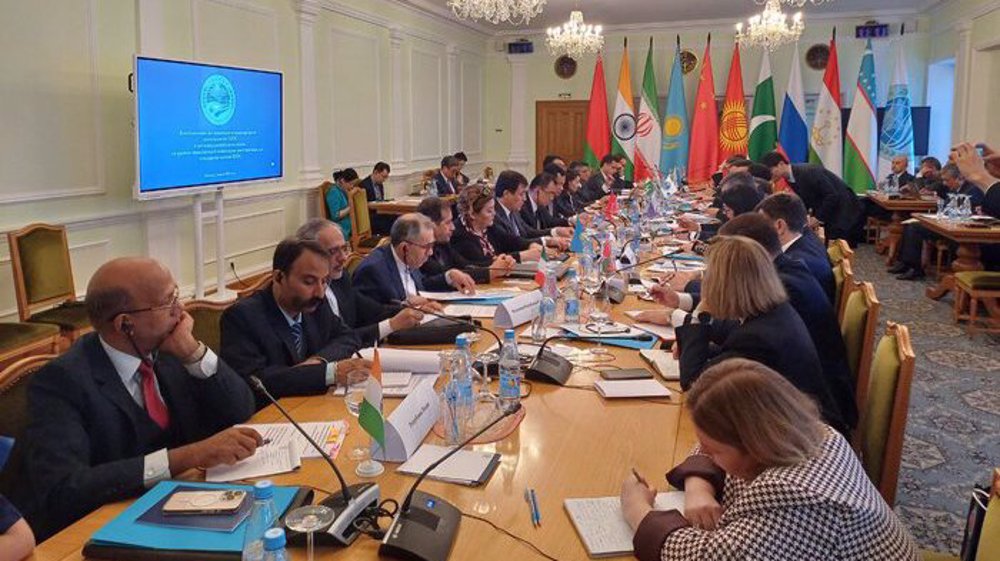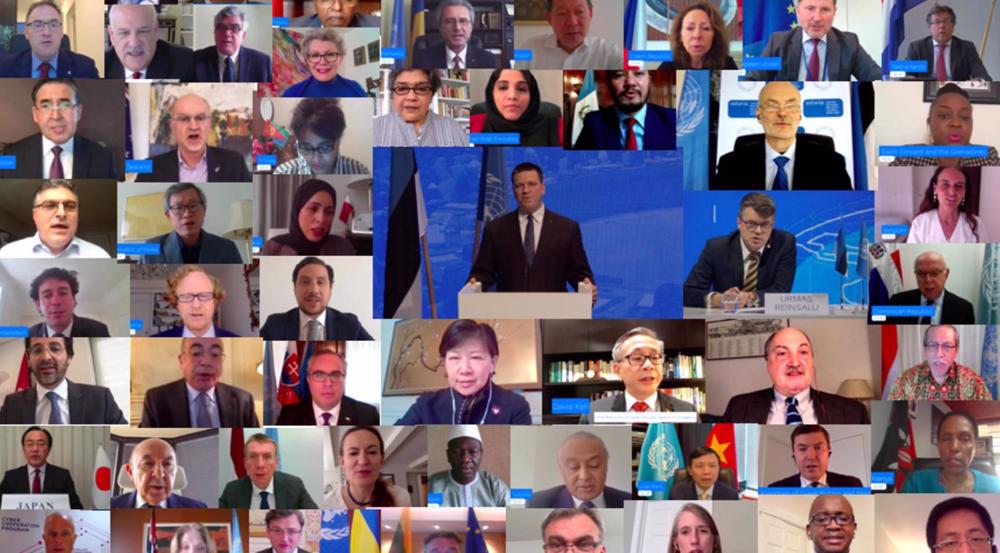Iran's FM to address UNSC meeting on Resolution 2231
Iran’s Foreign Minister Mohammad Javad Zarif is to address a virtual meeting of the UN Security Council on Tuesday in order to highlight the full implementation of Resolution 2231.
The Resolution 2231 is a UN Security Council resolution that enshrined the nuclear deal between Tehran and world powers, officially known as the Joint Comprehensive Plan of Action (JCPOA), after it was concluded in 2015.
As one of the achievements of the deal, endorsed by the Resolution 2231, the UN’s arms embargo against the Islamic Republic of Iran is to be lifted by October 2020. However, the US is trying to prevent the removal of the arms embargo, even though it is no longer a JCPOA partner after it withdrew from the deal in 2018 and re-imposed the nuclear sanctions against Iran, which had been lifted as per the accord.
In a tweet on Monday night, Zarif took a swipe at the US for its efforts to strip Iran of the right to reap full benefits of the JCPOA despite remaining unilaterally committed to its obligations.
“The US isn't merely violating JCPOA and bullying others to do so, too. It also has dishonor of being first in UN history to punish law-abiding countries for NOT violating a Security Council resolution,” Zarif said.
“I will present Iran's case to the Council at about noon ET, Tuesday,” he added.
Earlier in the day, Foreign Ministry spokesman Abbas Mousavi said the United States has forfeited all rights to bring the JCPOA achievements into doubt, urging Washington and its European allies against trying to damage the agreement any further.
“The Americans, due to their destructive actions against the JCPOA and Resolution 2231, have lost the position to question the deal's achievements,” Mousavi told a press conference.
Mousavi critiqued Washington and its Western allies’ attitude towards Iran’s defensive capability as witnessed, among other things, in their bid to extend the embargo, calling their approach “inadmissible.”
The country “does not stand on ceremony when it comes to its defensive capability,” he added, and advised the allies to stop trying to violate the Resolution.
Extension of the arms embargo “carries its own repercussions,” the official said, warning that Tehran has planned several “special measures” to take in the event of the ban’s prolongation.
He, however, said, “We predict another defeat for the US in this area,” adding, “I don’t think things will proceed in such a way (as far as the embargo’s extension).”
On Monday, US Special Representative for Iran Brian Hook also reiterated his call for extending the expiring United Nations weapons embargo on the Islamic Republic, claiming that lifting the arms embargo on the country will trigger an arms race in the Middle East region.
Speaking at a joint news conference with Saudi minister of state for foreign affairs Adel al-Jubeir in Riyadh, Hook said lifting the ban would "only embolden" Iran and destabilize the region.
"This is not an outcome that the UN Security Council can accept. The council's mandate is clear: to maintain international peace and security," Hook added.
Jubeir said, "Despite the embargo, Iran seeks to provide weapons to terrorist groups, so what will happen if the embargo is lifted? Iran will become more ferocious and aggressive.”
"We urge the international community to extend the embargo on selling arms to Iran and on Iran's ability to sell arms to the world," the Saudi foreign minister added.
The accusations come as the United States, the biggest arms exporter in the world, has been supporting a devastating Saudi-led war in Yemen, which the UN has described as the world's worst humanitarian crisis.
The Trump administration has threatened that it may seek to trigger a snapback of all sanctions on Iran if its attempts to extend the arms embargo fail.
Tehran, however, has firmly rejected Washington’s plans as the US is no longer a party to the nuclear deal ever since it withdrew from the multilateral agreement in 2018.
China and Russia, which are both signatories to the JCPOA, echoed Tehran’s position in their recent statements.

Pezeshkian: If Muslim nations unite, enemies cannot oppress them

Russia blasts Trump’s 'unacceptable' threat of bombing Iran

Iran calls on Shanghai bloc to condemn Trump’s 'dangerous' threats
VIDEO | Madrid cultural event for Syria with documentary hailing fight against Takfiris
VIDEO | UK economy reels from impact of Trump Tariffs
UNRWA chief slams Israel’s attacks on UN facilities
VIDEO | The story of Heyam: nowhere is like Gaza!
Israeli warplanes carry out more airstrikes near Damascus
VIDEO | 'War Criminal' welcomed
Denmark's PM visits Greenland after Trump threat to seize it
Pezeshkian: If Muslim nations unite, enemies cannot oppress them








 This makes it easy to access the Press TV website
This makes it easy to access the Press TV website